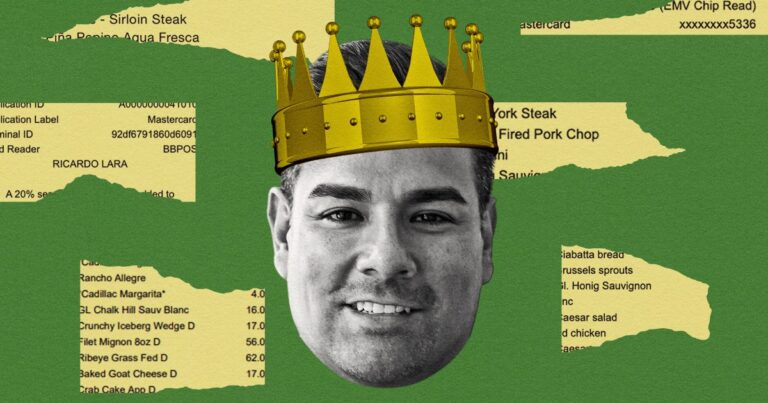Scrutiny Over Campaign Spending: Ricardo Lara’s Lavish Dining Habits
California’s Insurance Commissioner, Ricardo Lara, finds himself at the center of a controversy regarding his use of campaign funds for extravagant meals. On the evening of January 15, 2024, Lara dined at San Laurel, a high-end restaurant in downtown Los Angeles, where he and a guest reportedly enjoyed an impressive menu that included jamón Iberico and lobster salpicón. The total bill for the meal soared to around $700, with Lara charging $234 to a campaign committee he established two years ago for a potential run for lieutenant governor.
The Campaign Committee and Its Expenses
While Lara has not officially declared his candidacy for lieutenant governor and has undertaken few steps to establish a campaign, reports indicate he has used his committee to cover nearly $30,000 in dining expenses at some of the most exclusive establishments across the country. A significant portion of these meals was categorized as “campaign meetings,” raising questions about the nature of the engagements and the individuals he was entertaining.
Political Context and Industry Relationships
Lara, who has served in various political roles and made history as California’s first openly LGBTQ+ statewide officeholder, has faced mounting challenges during his tenure as insurance commissioner. Increasing wildfires and the subsequent withdrawal of insurance providers from the state have complicated his position. Many political analysts believe that Lara’s chances of ascending to further statewide office may be slim given the ongoing issues plaguing the insurance landscape in California.
“There is no way in hell that Ricardo could get elected to statewide office right now,” commented a Democratic political consultant.
Investigations and Accusations
The Standard’s investigation highlights the potential misuse of campaign funds. Critics argue that the lavish spending reflects a troubling blend of regulatory oversight and political favoritism, particularly given Lara’s previous commitment to distance himself from insurance industry contributions. Following his initial election, Lara was criticized for accepting significant donations from insurance entities, leading him to publicly renounce such practices.
Carmen Balber, head of Consumer Watchdog, expressed concern, stating, “It sounds like he’s mixing regulation and politics once more… If this wasn’t a campaign meeting, then what is this campaign committee? Nothing more than a slush fund.”
High-Profile Dining and Campaign Financing
Details of Lara’s dining expenditures reveal extravagant meals, including a notable dinner at Piatti in Sacramento, where discussions amounted to over $1,000 for eight attendees. Such instances have prompted calls for increased transparency regarding how campaign funds are utilized, especially for meals that exceed the $200 threshold designated by the California Fair Political Practices Commission (FPPC) as politically necessary.
Furthermore, experts on campaign ethics have noted that the proliferation of “shell committees,” like Lara’s, allows politicians to maintain campaign war chests without actual intent to pursue a given office.
Future Implications
As Lara continues his term with less than two years remaining, the implications of his financial choices are being closely monitored by political analysts and the public alike. He has amassed significant leftover funds from previous campaigns but is now facing criticism for continuing to collect donations from special interests while not visibly engaging in a campaign.
“He’s a perfect example of someone who had no business being elected to this position,” remarked a Democratic consultant, underscoring the urgent need for campaign finance reform in California.



